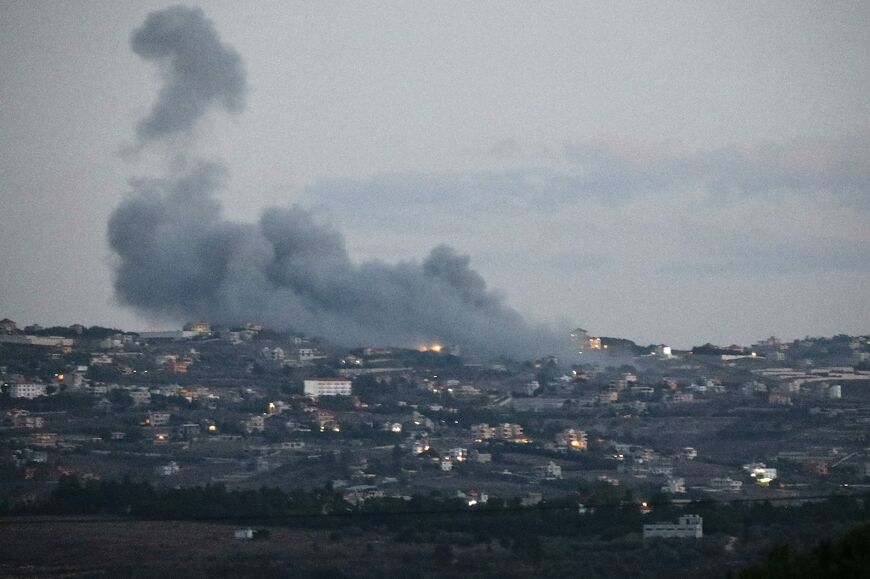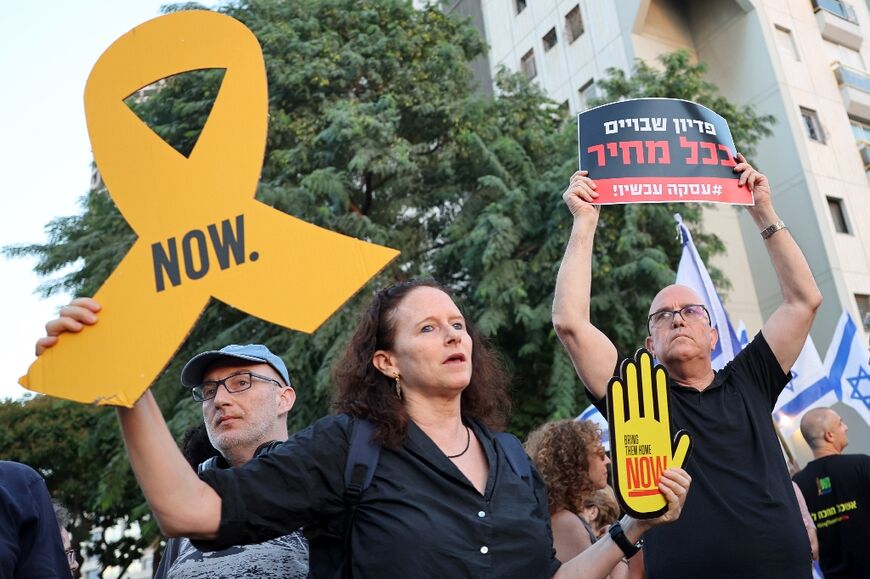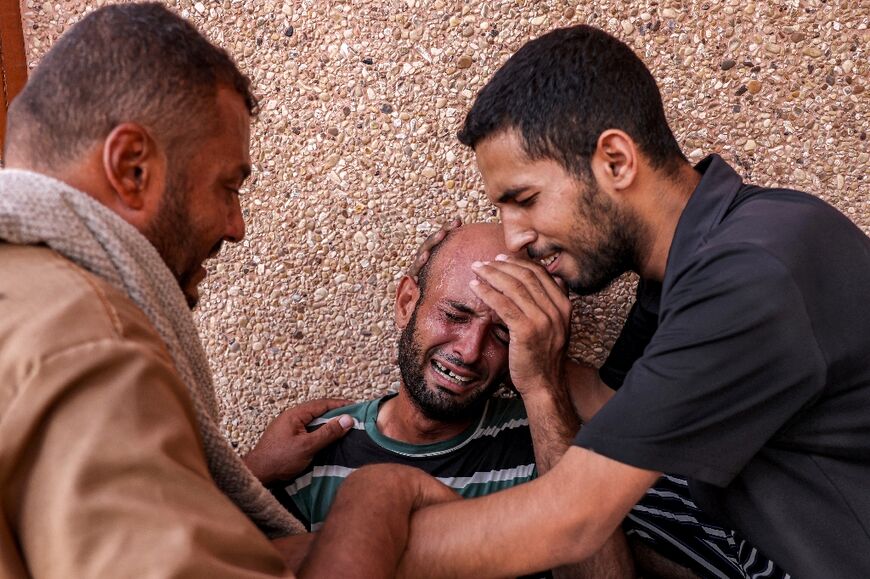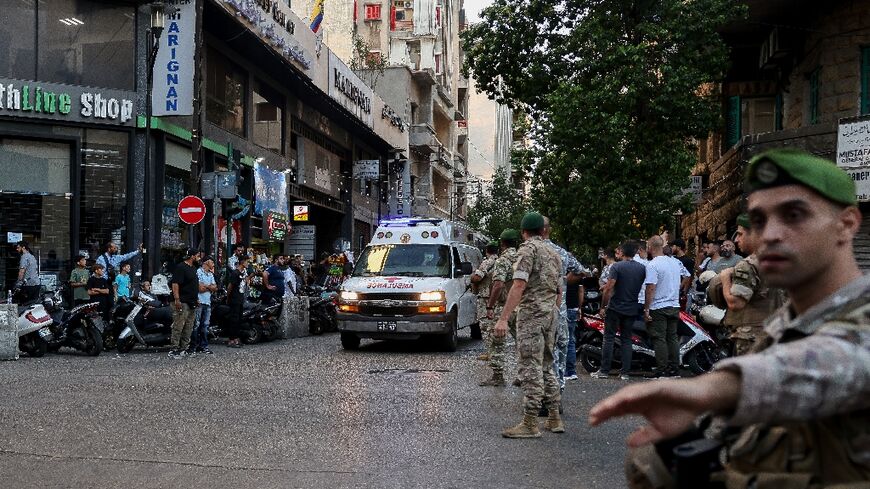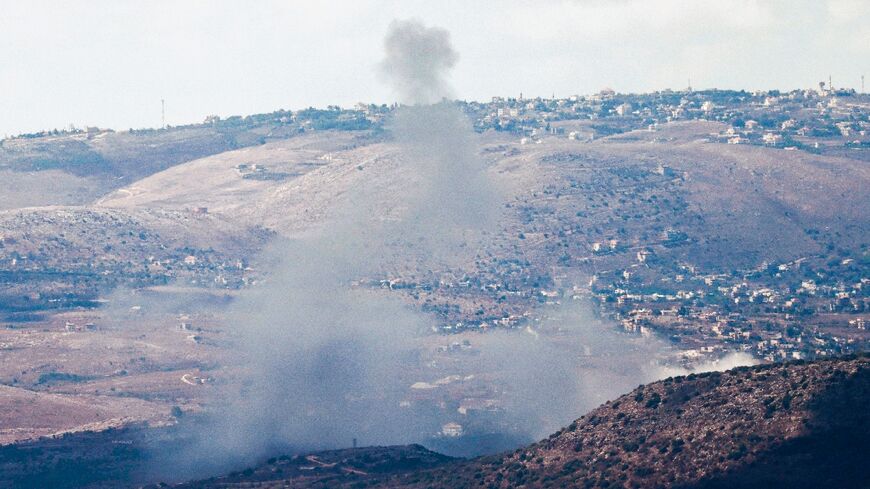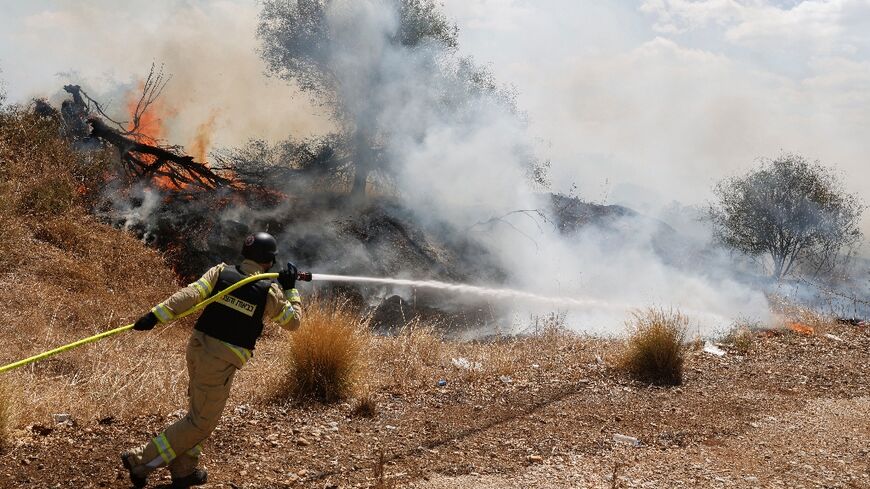Israel PM adds war goal of allowing northern residents to return home

Israel's Prime Minister Benjamin Netanyahu on Tuesday expanded the country's goals for the war in Gaza, vowing to allow Israelis who fled areas near the Lebanon border to return to their homes.
Nearly a year after Hamas's October 7 attack sparked war in the Gaza Strip, cross-border fire has been traded almost daily between Israeli forces and the Iran-backed Lebanese armed group Hezbollah, which says it is supporting its Palestinian ally.
The exchanges have killed hundreds of mostly fighters in Lebanon, and dozens of civilians and soldiers on the Israeli side.
It has also forced tens of thousands of people on both sides from their homes.
"The political-security cabinet updated the goals of the war this evening, so that they include the following section: the safe return of the residents of the north to their homes," Netanyahu's office said in a statement released early Tuesday.
The day before, Israel's Defence Minister Yoav Gallant told a visiting US envoy that "military action" was the "only way left to ensure the return of Israel's northern communities".
Hezbollah officials have said the group would stand down if a Gaza ceasefire were reached, but Gallant warned time was "running out".
Hamas, meanwhile, said it was readying for further war, with assistance from fighters and support from across the region.
In a letter to the group's Yemeni allies, whose maritime attacks have disrupted global shipping, Hamas chief Yahya Sinwar said: "We have prepared ourselves to fight a long war of attrition."
"Our combined efforts with you" and with groups in Lebanon and Iraq "will break this enemy and inflict defeat on it", Sinwar said.
His comments came less than a week after Gallant told journalists that Hamas "no longer exists" as a military formation in Gaza.
- Blinken in Egypt -
While months of mediated negotiations and shuttle diplomacy have failed to pin down a truce, Washington said it was still pushing all sides to finalise an agreement.
To bridge the remaining gaps, the United States is working "expeditiously" on a new proposal, according to State Department spokesman Matthew Miller.
Miller said US Secretary of State Antony Blinken will discuss the ceasefire drive with Egyptian officials on a visit there this week.
Blinken will "discuss ongoing efforts to reach a ceasefire in Gaza that secures the release of all hostages, alleviates the suffering of the Palestinian people, and helps establish broader regional security", Miller said in a statement.
Netanyahu has publicly rejected US assessments that the deal is nearly complete and has insisted on an Israeli military presence on the Egypt-Gaza border.
Mounting international and domestic pressure has failed to sway him to agree to a hostage release deal that has wide support from the Israeli public.
The October 7 attack on southern Israel that sparked the war resulted in the deaths of 1,205 people, mostly civilians, according to an AFP tally based on official Israeli figures.
Militants also seized 251 hostages, 97 of whom are still held in Gaza, including 33 the Israeli military says are dead.
Israel's retaliatory military offensive has killed at least 41,226 people in Gaza, according to the Hamas-run territory's health ministry, which does not provide a breakdown of civilian and militant deaths.
- 'Collective punishment' -
On Tuesday, United Nations member states will debate a draft resolution demanding an end to the Israeli occupation of all Palestinian territories within 12 months.
Although General Assembly resolutions are not binding, Israel has already denounced the new text as "disgraceful".
UN Secretary-General Antonio Guterres told AFP that "nothing justifies" the collective punishment of the Palestinian people.
"We all condemn the terror attacks made by Hamas, as well as the taking of the hostages, that is an absolute violation of international humanitarian law," he said.
"But the truth is that nothing justifies the collective punishment of the Palestinian people, and that is what we are witnessing in a dramatic way in Gaza."
In central Gaza on Monday, survivors scoured debris after Israel bombed the Nuseirat refugee camp.
Ten people were killed and 15 wounded in a strike on the Al-Qassas family home in Nuseirat, said a medic at Al-Awda Hospital.
"My house was hit while we were sleeping without any prior warning," said survivor Rashed al-Qassas.
- 'Fundamental change' -
Along Israel's northern border with Lebanon, Hezbollah claimed "dozens" of attacks on Israeli positions on Monday, and Israel's military said it struck "terrorist" targets in Lebanon.
"The possibility for an agreement is running out as Hezbollah continues to tie itself to Hamas," Gallant told visiting US envoy Amos Hochstein, a defence ministry statement said.
Netanyahu later told Hochstein he seeks a "fundamental change" in the security situation on Israel's northern border.
Hezbollah deputy chief Naim Qassem said Saturday his group has "no intention of going to war", but if Israel does "unleash" one "there will be large losses on both sides".
The cross-border violence since early October has killed 623 people in Lebanon, mostly fighters but also including at least 141 civilians, according to an AFP tally.
On the Israeli side, including in the annexed Golan Heights, authorities have announced the deaths of at least 24 soldiers and 26 civilians.


